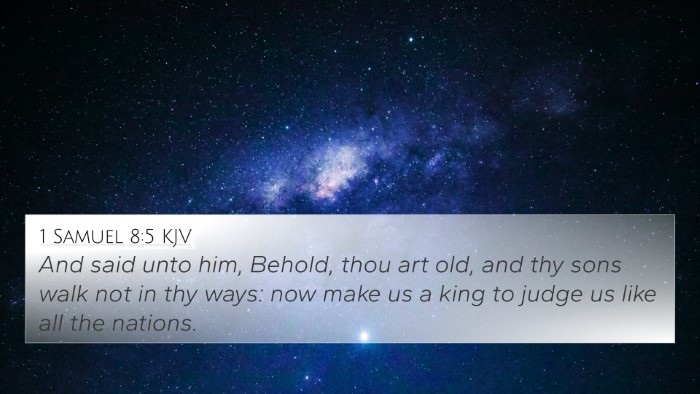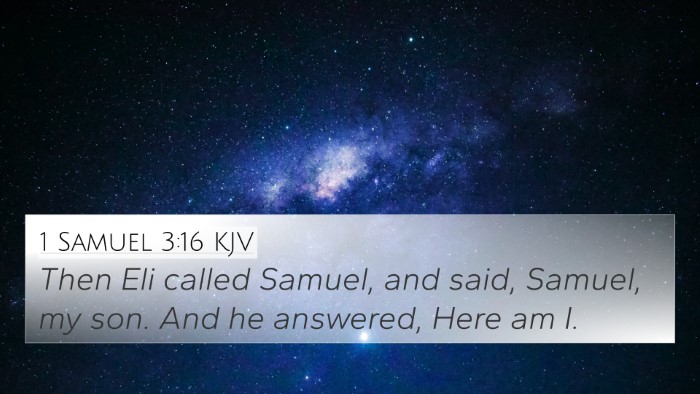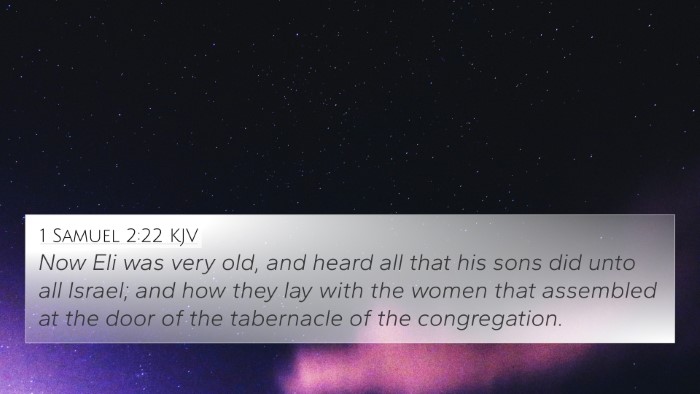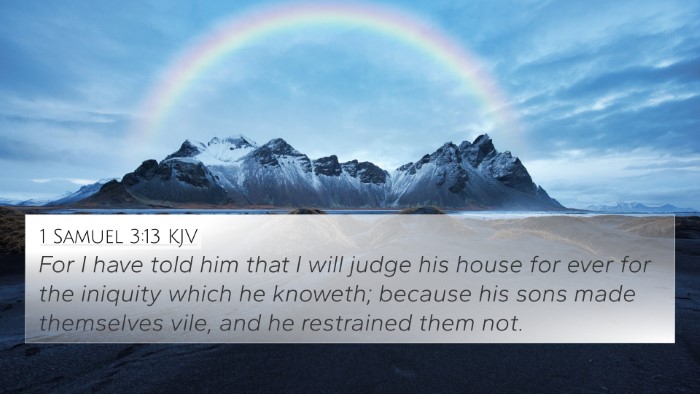Understanding 1 Samuel 12:2
Verse: "And now, behold, the king walketh before you: and I am old and grayheaded; and behold, my sons are with you: and I have walked before you from my childhood unto this day."
General Overview
This verse captures the essence of Samuel's farewell address to the nation of Israel as they transition into kingship under Saul. Samuel reflects on his leadership and the importance of accountability and faithfulness before God.
Verse Context
Historical Context: This moment occurs after the Israelites demand a king, prompting God to appoint Saul. Samuel, a prophet and judge, serves as a mediator, reminding the people of their past and their covenant with God.
Commentary Insights
Matthew Henry's Commentary
Henry emphasizes Samuel's integrity and his full commitment to his role as a leader. He points out that Samuel, despite being old, displays a full transparency in admitting his limitations and acknowledging his sons, setting a tone of accountability.
Albert Barnes' Notes on the Bible
Barnes highlights the significance of Samuel’s personal example, noting that he has served Israel from youth, thus demonstrating the sincerity of his leadership. His mention of his age reflects a life dedicated to God’s service and the importance of legacy.
Adam Clarke's Commentary
Clarke delves into the dual significance of Samuel’s statement about his sons. This introduction to his sons may highlight both the potential continuity of leadership and the recognition of their inexperience compared to Samuel's righteous life. He calls upon the people to contrast their future king with their faithful leader.
Thematic Connections
This passage serves as a profound reflection on leadership, accountability, and the transition of power in governance among God's people. It underlines the Biblical theme of reliance on God versus the secular idea of kingship.
Cross-References
- Deuteronomy 17:15: The appointment of a king reflects the guidelines given by Moses.
- 1 Samuel 10:1: Samuel anoints Saul as king, displaying the fulfillment of God’s promise.
- 1 Samuel 8:6: The people's demand for a king signifies a pivotal moment in Israel's history.
- 1 Samuel 15:22-23: Samuel underscores the importance of obeying God over mere ritual sacrifices.
- 1 Samuel 16:1: The transition to David as a rightful leader, illustrating God’s continued guidance.
- Psalms 78:70-72: Reflects on God choosing David and framing the role of leadership in worship.
- 1 Peter 5:2-3: An epitome of spiritual leadership, drawing parallels to Samuel's character.
- Hebrews 13:7: Encouragement to remember and emulate the faith of spiritual leaders.
- Proverbs 1:8-9: Signifying the importance of heeding parental and elder guidance in faith.
- Matthew 23:8-12: Echoes Jesus' teaching on humility and servant leadership among His followers.
Exploring Connections Between Bible Verses
Understanding 1 Samuel 12:2 illuminates several connections with other Scriptures. It forms both thematic and narrative links between the leadership qualities exhibited by Samuel and those expected in New Testament directives, particularly concerning humility, accountability, and divine obedience.
Practical Applications
In application, believers are invited to consider the qualities that define their leaders and their own leadership styles. Samuel's dedication serves as a template for integrity and faithfulness that transcends time.
Conclusion
1 Samuel 12:2 encapsulates the theme of godly leadership as portrayed throughout Scripture. Through the cross-referencing of various Biblical texts, we glean an understanding of leadership both in the historical context of Israel and in the personal spiritual journey of believers today.
Additional Resources for Cross-Referencing
For those interested in deeper study, numerous tools can aid in Bible cross-referencing:
- Bible Concordances: invaluable for locating specific themes and topics quickly.
- Bible Cross-Reference Guides: particularly helpful for sermon preparation.
- Comprehensive Bible Cross-Reference Materials: useful for extensive study and thematic exploration.
This exploration reveals that Scripture consistently dialogues with itself, providing rich insights into the themes of leadership, faithfulness, and the legacy of God’s people.
















